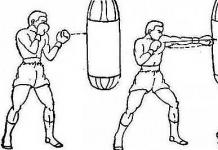One of the most difficult tests that fate can prepare for a woman is divorce from an alcoholic. We can talk a lot about women's patience, love, compassion, and the desire to save the family. You are allowed to doubt, fight, sacrifice yourself. But it is wiser to radically resolve this issue if it arises in your life.
A happy marriage is, first of all, mutual respect, love and understanding between the spouses. The absence of at least one of these “bricks” in the foundation of the family over time presents problem after problem. But, together, any, even the most difficult situations can be overcome more easily. All except one - alcohol addiction.
Usually, the first year of marriage is cloudless. The husband and wife enjoy each other, get used to the new way of life, plan the main stages of coexistence and children. But there are families in which already at this time of romance the question arises related to the attitude towards alcohol. This is a disaster!
Causes
Previous bad habits (including those of a genetic nature) turn out to be stronger than the family aura.
Psychological incompatibility of spouses, scandals, low self-esteem of each, insufficiently high level of cultural development.
- Domestic troubles, housing issues, financial insecurity.
- Interrupted career growth, disappointment, lack of interest in life.
- Beer alcoholism - gambrinism.
- Male infertility.
- Death of a loved one.
When is it possible to correct the situation and save the family?
The problematic situation that has arisen can and should be corrected. True, given its seriousness. The largest percentage of divorces is due to alcoholism. Despite the fact that it is very difficult to decide to divorce your husband if he drinks quietly, without burdening the family with his behavior. The most important thing is not to waste time.
If it is possible to eliminate the reason that provoked the addiction to relieving stress with alcohol, this is one situation. We survived and forgot. If the habit of drinking is second nature, it is completely different. Alcoholism is a serious disease that affects both body and soul. This is substance abuse, the sister of drug addiction.
To get rid of a terrible illness, you need not only the help of a narcologist or psychologist, but also the desire of the patient himself, his willpower. The incentive for treatment should be a clear awareness that living with an alcoholic is essentially abnormal. Everyone suffers from such a situation. Unhealed mental wounds remain until old age.
Emotional stress, social discrimination, and psychological stress on the wife of an alcoholic are extremely high. A child growing up in a family of a drinking man, against a background of constant conflicts and mutual reproaches, forms a model of antisocial behavior in the future. Pathological character traits and problems communicating with peers arise.
What to pay attention to before divorce
If the husband does not understand the tragedy of the situation, does not want to listen and hear, the problem will grow exponentially. In this case, when deciding whether to correct the situation, you need to take into account:
- How often does a husband behave beyond the boundaries of good and evil.
- How long does it take to go on a binge?
- Is the spouse capable of normal communication and intimacy.
- Is he aggressive when intoxicated?
- What emotions do family members, especially children, experience? How does this affect their physical and mental health?
- Is your loved one religious?
- Are you financially independent?
Behavior rules
If there is even a drop of hope to improve the situation, you need to position yourself correctly in communication with your spouse:
- Never allow him to insult or humiliate himself. It is necessary to make it clear that you are ready to seek help from the law, family, and church. In the worst case scenario, write a statement to the police.
- You cannot cover up his “sins”, protect him from friends, colleagues, or yourself. An alcoholic must learn to take responsibility for his actions if you want to continue living with him.
- Don't solve his problems for him. Overcoming is an incentive to get rid of addiction.
- Don't let him down, but never humiliate him.
- Take care of yourself, grow culturally, communicate with friends, start visiting temple. Orthodoxy and Islam are powerful helpers. Do everything to interest your spouse in your life, social problems, and involve him in them.
- Establish communication between your husband and children, do everything so that they help him cope with the disease and do not stop respecting him.
- Remove alcohol from the house.
When should you leave your drinking husband?
Deciding to divorce an alcoholic husband is not easy. But if you have exhausted all conceivable and inconceivable methods of resolving the situation, it is simply necessary. For a woman this is a real tragedy. She is sacrificial, in essence, and therefore is ready to endure hardships, material disadvantage, and everyday discomfort for a long time. And forgive.
However, there is a line that cannot be crossed. This is a beating. If your alcoholic husband raises his hand against you, leave him that same day without hesitation. The consequences are not important, what matters is your life and that of your children. Once he hits, he will do it again and again. Breaking up is the only way to avoid tragedy. No options.
The second unconditional reason for divorcing an alcoholic is moral terror. Stress, anticipation of trouble, a feeling of complete confusion, lack of self-confidence. A woman cannot live in such conditions. The situation is aggravated by developing codependency and the need to lie to others. Divorce is the only solution to the problem.
Divorce for the sake of children - pros and cons
It’s probably no secret to anyone that “the weather in the house” is more important to your child than to you. Therefore, if you answer the question about divorce, protecting the interests of children, the answer is clear, and you know it. A child cannot respect a drinking father. He may love him at the subconscious level, but never respect him.
Divorce of parents will bring a lot of suffering to a little person. But wouldn’t the risk of being traumatized by falling under the “hot hand,” constant fear, humiliation, a sense of shame in front of peers, and burning resentment for the abuse of one’s mother tip the scales? Add possible malnutrition, lack of beautiful clothes, and a not at all happy childhood.
In the future, this will most likely turn into aggression due to self-doubt. Of course, if “there is no prophet in his own country,” it is all the more impossible to weigh all the pros and cons of divorcing an alcoholic from the point of view of a child. And yet, when divorcing your drinking husband, remember this:
- A child is something that will bind you all your life. Therefore, if your husband still has at least a drop of decency, responsibility, and love, do not interfere with communication between father and child. Naturally, if he is sober, he is not dangerous for the baby, and the child himself is happy to meet you.
- Never discredit the father in the eyes of the child. Explain that alcoholism is a disease, divorce is a necessary measure.
- Don't refuse financial help from your ex-husband, but don't demand the impossible either.
- Do not interrupt the connection between the child and the husband's parents.
- Surround your child with care and affection, do not impose your experiences on him, create an emotionally favorable atmosphere in a family without a father.
Rules to help you break up with an alcoholic
If a breakup is inevitable, you need to act. Psychologists know how to divorce an alcoholic husband without unnecessary worries and mistakes if he (God forbid!) does not give his consent. They recommend using specific rules of conduct:
- The decision must be made irrevocably. Before a divorce, you need to warn your spouse a couple of times (no more!) about a possible separation if he does not give up his addiction. You can even try living temporarily apart. If such measures are futile, leave without looking back.
- Remember firmly that promises to improve cannot last forever. If, after receiving forgiveness, drinking does not go away from your life, save yourself before it’s too late.
- Don't feel sorry for the alcoholic. He will disappear in any case, with or without you, if he does not part with the bottle.
- Think about yourself, your children, their mental and physical state.
- Leave home without your spouse. Extra prayers, extra tears. The end is known.
Legal aspects of divorce
In the absence of property claims, divorce does not pose a serious legal problem. The case of divorce is considered and decided by the registry office at the place of residence of the former married couple. Division of property, disputes concerning minor children, payment of alimony are the prerogative of the court. An application is submitted to it.
Traveling with your spouse
Perhaps, in our country, the lack of their own housing is one of the main problems due to which women do not dare to divorce a drinking man for a long time. Even if he is a tyrant. However, with a correctly executed, from a legal point of view, application to the court, the problem has several solutions:
If the spouses do not have the funds to purchase separate housing and the husband’s consent to leave, the court has the right to oblige the former married couple to sell the apartment and divide the money from the transaction in equal shares.
A mortgage loan is also not a death sentence. The debt, at the request of one of the spouses, can be divided in court between husband and wife. In this case, the previous mortgage lending agreement is terminated and two new ones are concluded. This practice excludes the parties' liability for each other's insolvency.
If your family rented a room, but you don’t have friends who can shelter you for the first time, this is not a reason to despair. In any city in the country there are services designed to solve such problems. If necessary, they will provide assistance from a psychotherapist or psychoanalyst.
Psychological help after divorce
Going through a divorce from an alcoholic husband is not easy. It is not always possible to assess the damage it caused to the psychological and physical health of loved ones. But the emotional exhaustion of the family is obvious. Considering the continuous attempts of a drinker to contact his wife and children, support after a divorce is extremely necessary.
Specialized social services are called upon to provide this. Their task is to calm down a woman in a state of shock, find temporary housing, place her children in a new school (kindergarten), provide work, assess the safety margin of the emotional sphere, help rehabilitate, and survive a divorce from her alcoholic husband.
There are several such organizations in accordance with the profile of assistance provided:
- Center for social assistance to women who have experienced divorce.
- Rehabilitation center to support victims of violence.
- Center for psychological assistance to children in difficult situations.
Turning to specialists helps to cope with feelings of loneliness, mood swings, and depression. In critical situations - stop suicide attempts. A psychologist will help children and adults in this situation gain self-confidence and restore personal relationships with loved ones and friends.
New life
It is important to start a new life with a clean slate, having managed to turn the page of the past. Psychologists advise:
- Eliminate contact with your ex-husband, at least at first.
- Organize your time correctly so as not to be alone: study, work, friends, theater, exhibitions.
- Sign up for a spa salon, buy a new dress, dye your hair, change your image.
- Spend more time with children, parents, and loved ones.
- Start swimming in the pool on a regular basis.
The green serpent destroyed entire civilizations, let alone individual families.. The fight against alcoholism does not bring pleasure either to those who are susceptible to this disease, or to those who want to help their loved ones.
After trying all the methods, begging, cursing, giving ultimatums, you finally gave up. And you don’t have to reproach yourself for this - the man you once loved made a choice not in your favor, so it's time to start living for yourself. But how to part with an alcoholic when your mental strength is already running out?
Last chance
You are determined to stop all the horror that you see in your life. Give your husband an ultimatum that involves a complete abstinence from alcohol. It is unlikely that he will tie the knot, but you will know for sure that you did everything possible to save the marriage. Do not listen to his threats, reproaches, appeals to your pity. If his drunkenness has reached the fourth stage, you will no longer get him out of it. Only a strong shock, which can be your departure, can force him to change his life and begin to get rid of addiction.
Don't take his word for it if he promises you not to drink anymore. The main condition is treatment. Let him go to a drug treatment clinic, cleanse his blood, do coding, etc. Give a clear trial period, after which you will leave if he does not recover.
Ask people for help
A chronic alcoholic no longer controls himself. Close people mean no more to him than his addiction. If he is not given the next dose of alcohol, he is capable of assault, threats, and doing terrible things. This tyranny is difficult to cope with, especially when a man has great physical strength and is naturally inclined to aggression. Any words about divorce make him angry and he intimidates the woman, not giving her the opportunity to free herself from the unbearable burden.
Do you recognize yourself? You can’t handle it alone, but the whole world can defeat him. If a person stronger and more authoritative than your spouse comes to your defense, the problem will be solved. Try contacting the police. Despite all the bias towards the servants of the law, there are those among them who can find justice for an alcoholic. If not him, turn to your friends. Surely among his acquaintances there are adequate people who empathize with you.
Other options: human rights organizations, his or your employees, charities. Among the volunteers who search for missing people, there are many indifferent, physically strong men who will help you in your nightmare situation. Know that you can change your life, you do not owe anything to this man who betrayed everyone and everything for the sake of his passion. You need to stop saving your marriage, it's time to think about yourself and your children. They definitely don’t need to live next to a person who is constantly in a drunken stupor.
Divorce is always a difficult event. But what if life together has become unbearable? A common cause of divorce is alcoholism of one of the spouses.
A wife must provide support to her husband, and if an alcoholic husband shows an intention to return to a normal life and recover from alcoholism, he needs help. But what if all means have been exhausted, all attempts to reason with the man and save the family have failed?
In this case, you need to take care of your own physical and psychological health and the happiness of your children. After all, a child who grew up with an alcoholic father has every chance of repeating his path, or starting a family with a drinking person. In this case, there is nothing left but to separate from your alcoholic husband.
Psychological aspects of a codependent family
In most cases, families of alcoholics are codependent. That is, the life of the wife and children is subordinated to the needs of the husband and father. At the same time, the wife of a drinker is often under the illusion that she can influence the behavior of the alcoholic, forcing him to stop drinking, and thereby save him from drunkenness.
It should be realized that codependent relationships are characteristic exclusively of weak people. Those who actually save others, at the call of the soul or at the behest of duty, are not in such relationships. They help, but do not become attached; their own lives are built independently of the wishes of those being saved.
As a rule, the wives of alcoholics are people who are painfully insecure and have low self-esteem. To assert themselves, they need to feel needed. It is this psychological benefit that women realize in a marriage with an alcoholic, believing that the alcoholic husband is completely dependent on their care and will definitely disappear without it.
You should understand that this is self-deception. The husband is an independent adult and only he decides which path his life will take. Only those who themselves want to return to a sober lifestyle can be saved from alcoholism.
If an alcoholic repents over and over again, promises to improve, but time passes and nothing changes, it means that he actually has no intention of quitting drinking, and all his vows are simply a way of manipulation. This means that the woman has no other choice but to separate from her alcoholic husband.
Separation or official divorce
 You can separate for a while by evicting your husband from the apartment and making sobriety a prerequisite for returning. If he wants to save his family, let him take real steps to stop drinking. This may include treatment in a clinic or self-abstinence from alcohol if addiction has not yet developed. While he makes a decision, let him stay with relatives and friends. If the appointed period has passed and the husband is still drinking, it is time to get a divorce.
You can separate for a while by evicting your husband from the apartment and making sobriety a prerequisite for returning. If he wants to save his family, let him take real steps to stop drinking. This may include treatment in a clinic or self-abstinence from alcohol if addiction has not yet developed. While he makes a decision, let him stay with relatives and friends. If the appointed period has passed and the husband is still drinking, it is time to get a divorce.
How to overcome the fear of change?
Fear prevents a woman from divorcing her husband. She is afraid to take responsibility for herself and her children, afraid of changes and the problems that she will have to go through, because breaking up with an alcoholic is a difficult but necessary step. A woman will have to understand that the most important thing for her should be her own life and the lives of her children. You should not sacrifice them to a person who is addicted to alcohol.
When divorce is inevitable
 The main advice that can be given in this situation is that if the decision to divorce is made, it must be strictly adhered to.
The main advice that can be given in this situation is that if the decision to divorce is made, it must be strictly adhered to.
What problems will have to be solved:
- Legal issues.
- Living space section.
- Psychological support.
How to get a divorce – court or registry office?
If there are minor children in the family, divorce is carried out through the court. If necessary, you can immediately file a claim for divorce, alimony and division of property. If there are no children, in the absence of property disputes, it is necessary to file an application for divorce with the registry office. This can be done in the absence of your spouse.
How to separate from your husband
Sometimes people stay together for years simply because they have nowhere to leave the apartment they share.
- If the divorce is accompanied by a division of property through the court, a decision may be made to sell the apartment and buy two separate apartments in the shares determined by the court decision.
- A joint loan for the purchase of housing can also be divided either voluntarily - by terminating the contract and concluding a new one, or by a court decision.
- You can contact your local administration to obtain social housing.
- If there are no financial problems, you can purchase a new apartment. The main thing is to try to move as far as possible from your husband. This will reduce the likelihood of meetings that could make a difficult impression or even lead to the return of your wife.
Psychological support in working on yourself
 A woman who decides to divorce her alcoholic husband needs to work on self-esteem and learn to build her personal boundaries. It is necessary to clearly understand what behavior she intends to allow or prohibit in relation to herself in the future.
A woman who decides to divorce her alcoholic husband needs to work on self-esteem and learn to build her personal boundaries. It is necessary to clearly understand what behavior she intends to allow or prohibit in relation to herself in the future.
Very rarely does a woman break up with her alcoholic husband without wasting her energy; more often she tries to help him: she persuades him to stop drinking, to get into the cold, promises help in starting a new life... and does not think about herself. Why is this happening?
If we look more closely at the lives of women who connected their lives with an alcoholic, we will see the same pattern: her parents had no time for her, and she was very tried to earn love with help. Maybe her mother raised her alone and couldn’t pay enough attention, maybe her mother herself was unhappy, trying to achieve her husband’s love... And the girl grew up and grew up with the conviction that love must be earned by perfection and help, then she will be appreciated and loved.
It is very difficult, even impossible, for a child to accept that his parents treat him poorly, do not help him, and behave irresponsibly. He definitely needs to find a loophole: “I’ll be good, and they’ll love me!”, but I won’t notice the bad. This psychological defense mechanism is called denial, it makes life easier due to the fact that the problem is not noticed and mental pain is not recognized, but in the long term, denial does not lead to anything good.
Karpman's Bermuda Triangle
In such a family, relationships follow the Karpman triangle. The child is appointed either as an unfortunate Victim, who is offended by everyone, or as a Persecutor, who is to blame for the fact that his parents feel bad, or as a Savior, capable of doing good for everyone. The most dangerous thing is that in this triangle everyone acts in accordance with imposed roles, no one takes responsibility for their life.
The victim thinks: “I feel bad, but if He behaves differently, I will feel good...”; The persecutor exposes and eradicates the shortcomings of others, seeks apologies and promises - if the apologies satisfy him - he becomes a Savior, ready to save the unfortunate in trouble. But woe to the unfortunate one if he is not saved the way the Savior wants - the Savior immediately becomes a Persecutor, criticizing and putting him in his place, or a Victim who spent so many years of his life saving this terrible person!
You see what happens: in this triangle, everyone depends on the other - the Victim cannot save herself, but wants to be saved correctly; The persecutor spends himself on eradicating the shortcomings of others; The Savior saves someone who, perhaps, will perfectly save himself if he gets down to business.
You definitely need to jump out of this triangle: as soon as they start criticizing you, there is no need to make excuses, you can simply say: “You explain so well how it should be done - you’ve got the cards in your hands!” Don't settle for an imposed role! But for this you need to be able to see Karpman's triangle from the side– and it is almost impossible for a person who has participated in it all his life to do this himself. Psychotherapy helps in this case, and... a good friend with life experience who can see and show what is happening. But not everyone is so lucky; finding a good psychotherapist is much easier. And even if you have a friend, you still need a psychotherapist.
And so our sweet, understanding woman always helps friends and relatives, then naturally meets a person needing help- and rushes to the rescue, because she used to helping. In addition, the role of a lifesaver is also socially approved, everyone admires selfless and kind people - and everyone can’t be wrong! His addiction to a glass does not frighten her, she firmly believes that with her help he will improve. She helps him in everything: she can pay off his debts, offer him to move in with her if he lives with his parents, etc. She again feels bad in close relationships, just like it was in the family, and just like before, she tries not to notice this, seeing no other way out.
What about a husband with alcoholism?
And a partner with alcoholism also depends on alcohol.
Alcoholism- not a weak character, not a whim, but serious illness He is treated by psychiatrists specializing in addiction medicine (narcology psychiatrists). In addition, alcoholism can be accompanied by various personality disorders or comorbid (occurring in parallel) mental illnesses.
Alcoholic due to illness and often due to a co-occurring personality disorder incapable of love and emotional intimacy. And his wife had no place to develop this ability; she needed to somehow survive, not paying attention to her feelings. And now she is not aware of her true feelings, she distorts them, especially if they do not fit into the picture of an ideal family.
Divorce for the sake of children - pros and cons
It’s difficult for children with her: when they ask for help, she tries not to hear, not to notice, reinterprets everything that was told to her... as best she can, she fights for a calm existence.
It’s important to understand here: it’s very difficult for our heroine to give up such a life. Skill deny the obvious, not noticing her feelings, the ability to manipulate them does not allow her to see the seriousness of the situation. She does not want to admit that she was never able to save the alcoholic, did not become good enough and omnipotent. But it’s impossible to jump out of the Karpman triangle and start taking care of yourself without excessive dedication - she considers this position to be selfish.
In our society they still believe that the family must be preserved for the sake of the children. But children don’t really listen to their parents; they listen much more imitate. And no matter how much my mother verbally condemns my father’s alcoholism, if she lives with him, justifies his actions as a disease, covers him up in front of other people - children copy this behavior. Divorce in such a situation– a way to take care of children, don't give them this script. Otherwise, it will be just as difficult for the children as it once was for their mother. If the parents divorce when the children are already teenagers, they will not internalize the parental model of the family.
The most important thing for all people living with an alcoholic is to learn to understand themselves, don't deny your feelings, understand what the Karpman triangle is, and not give in to invitations to such relationships. Learn emotional intimacy, be able to recognize denial as a psychological defense against an unbearable situation and not succumb to it. Finally, learn to distinguish your goals, your desires from others. This is very painstaking work; the best and fastest way to go through this path is with a psychotherapist.
After divorce, everything is just beginning!
But divorce itself is not a panacea: now the woman needs to heal mental trauma, but learn to take care of yourself, not only about others, accept help other people. She had not been taught this before, but she could handle it if she turned to a psychotherapist for help. And there is no need to be ashamed of this, a psychotherapist is a common helping profession. We go to doctors, and we prefer to get our hair cut at barbers. So let a professional take care of your soul, not your best friend.
In psychotherapy, such a woman will be taught to understand the difference between helping a person, which does not destroy the one who helps, and help as salvation. When women (or men) take responsibility for the fate of an adult and put off their lives “for later.” While they help men, they risk creating relationships with men with personality deviations and dependence, determined to only “take” and demand “care and obedience.” And when will a woman learn embrace self-care without awkwardness and herself be very careful with– dependent men will leave on their own; such women are useless to them.
During psychotherapy, wives of alcoholics (and husbands of women suffering from alcoholism) will be able to deal with negative child-parent programs and codependency in relationships. Yes, a man can also enter into such a relationship, he is also a person, and can struggle with the same problems.
When is it possible to correct the situation and save the family?
If you are lucky and your loved one is still at the beginning of the illness, the stage that was previously called domestic drunkenness, and he does not have a personality disorder, you can try to cope. You will need consultations with a narcologist and a personal psychotherapist for your husband. And, since the woman has her own mental traumas, it was because of them that she entered into such a relationship - she also needs a psychotherapist. Their married couple did not have a truly close relationship - and now, in order not to run away from building a normal relationship from scratch, it would be good for the couple to also go to psychotherapy. If the children are already grown up, they will also need a psychotherapist.
If everything is much more serious, the patient has the first, second or third stage alcoholism, personality disorder, perhaps a personality disorder as a mask for severe mental disorders - the likelihood of anything being corrected is almost zero. In any case, if a person starts drinking, he needs to consult a narcologist, and not waste energy trying to cope “grandmother’s ways.” We must take life into our own hands, including by asking for help in a timely manner. We hope you have enough mental strength and courage for this.
Alcoholism is an acute and, unfortunately, very pressing problem for our society. Family members, as a rule, try to hide their misfortune from others, engaging in an uneven struggle with a serious illness.
A union with a person addicted to alcohol can hardly be called happy or prosperous. But is it possible to truly love an alcoholic or is it codependency? Before you find out whether an alcoholic can stop drinking for the sake of his loved one, you should understand the essence of this disease.
What is the psychology of an alcoholic? An irresistible desire to drink, panic if it is not possible to find alcohol, a willingness to steal, lie, sacrifice the interests of loved ones for the sake of alcohol. This explains the aggressive attitude towards people who want to limit their drinking. The addict regards their behavior as interference in his personal space and attempts to limit freedom.
Why is this happening? We often don’t notice how we cross the line between the willingness to sacrifice ourselves and our own interests for the sake of a loved one and the desire to completely control his life and actions. A person suffering from alcoholism feels constant pressure, mixed feelings of guilt and rejection and powerlessness, which only contributes to immersion in the world of bad habits.
At the same time, a relative suffering from hard drinking quickly masters ways of manipulating the feelings of relatives. He can “press on pity,” present himself as a victim, and blame loved ones for his own weakness for drunkenness. Tends to show aggression and psychological pressure to justify himself and get the desired dose of alcohol.
Psychoanalyst Nikolai Narytsin claims that so-called “henpecked people” often suffer from alcoholism.
Alcohol adds to them a feeling of confidence, courage, determination to raise their voice or beat their wife in a fit of anger. When such a man sobers up, he publicly repents of his deeds, kneels and showers him with gifts.
A completely reasonable question arises: can an alcoholic love a woman? Is love compatible with insults, beatings, theft of property, and constant lies? If your partner prefers to spend time drinking alcoholic beverages and can only relax with the help of a bottle. If your spouse does not appreciate your efforts to improve family life and care for him?
Reproaches, tears, pleas and threats will not be effective and will only push the patient to abuse. It makes no sense to live by controlling an addicted person, protecting him from danger to the detriment of himself. Donate your own time and energy to a futile struggle. The spouse, of course, needs support and care, but not strict control and self-denial.
Codependency, causes and consequences. How to avoid becoming a victim?
By definition, codependency is a pathological condition in which a person becomes deeply absorbed in the life of another, both emotionally and physically. By trying to control the behavior of a spouse or close relative or friend, we allow him to influence us.

Many wives and husbands are familiar with the tossing and turning between the right to personal happiness, freedom and a sense of responsibility for the life of a sick person, which borders on guilt and hope for recovery. How to leave an abusive spouse if separation is akin to betrayal?
The mechanism of codependency formation consists of several stages. At first, it is a means of psychological defense, a way of adapting to difficult life circumstances, a reaction to stress, which gradually turns into a person’s habit and lifestyle.
The condition is accompanied by destructive thoughts that prevent you from soberly assessing the situation and create barriers to radical changes in your own life. “He’ll be lost without me!”, “I can’t leave him!”, “I love him, I’m ready to endure and forgive everything!”
Factors influencing the formation of this condition:
- character traits;
- psychological trauma from childhood, for example, growing up in a dysfunctional family, alcohol addiction of one or both parents;
- violence;
- poor social adaptation;
- low self-esteem;
- copying the behavior model of a “codependent” parent.
It is typical for a person in this condition to:
- “frozenness” of feelings as a defensive reaction to an irritant;
- negation;
- tendency to self-deception;
- deep feelings of guilt;
- self-hatred for demonstrated weakness of character;
- aggressiveness;
- suppressed anger.
We can also note ignoring and inattention to our own needs, focusing on others to the detriment of our own interests, isolation and compulsive actions - unconscious behavior, actions that we repeat again and again, even regretting what we have done. Like a ritual, without rational goals and as if under the compulsion of an invisible inner force.
Having succumbed to the impulse, a person feels temporary relief and pleasure. Refusal from the “ritual” usually causes anxiety and internal discomfort. Codependency is often accompanied by problems in intimate life, depression, apathy, psychosomatic illnesses and even suicidal thoughts.
Is it possible to build a relationship with a chronic alcoholic?
First of all, you should know that alcoholism as a disease has several stages:
- The person simply “loves to drink.” Alcohol gives a feeling of psychological comfort, relaxation, and the illusion of getting rid of problems and stress. After drinking, he may behave unusually, funny or aggressively, and after sobering up there are memory lapses.
- There is a desire to hangover. Drinks alcohol irregularly, but often “breaks down.” Sometimes it's just an "innocent" bottle of beer in the evening. I am convinced that I can always become, but this is only a dangerous illusion. At this stage, abuse becomes chronic.
- Personality degradation, which is accompanied by psychological and physical codependency, problems at work and in the family. Irreversible changes in the body, the manifestation of diseases, the catalyst of which is a bad habit.

Social psychology identifies three types of roles for codependent people in the model of the so-called “Karpman triangle”. Obsessive help (the role of the “savior”), the willingness to devote one’s life to the beloved (the typical psychology of the “victim”) and the role of the “persecutor”, which manifests itself in the desire to completely control the life of another person. The only way to get rid of this model is to realize your role and reassess values, which helps to get rid of addictive behavior.
There is only one conclusion: it is impossible to solve a person’s problem without his desire and decisive action towards the intended goal.
The rescue of drowning people is the work of the drowning people themselves. — Ilya Ilf and Evgeny Petrov, novel “The Twelve Chairs”
The responsibility for healing lies with the partner suffering from painful cravings for alcohol. It is useless to try to cure your loved one by force, without the willingness and strong desire to overcome the addiction.
A necessary condition for effective treatment is following the doctor’s recommendations and strictly following the instructions.
Take care of yourself first. Seek help from a psychotherapist or anonymous groups for family members of an addicted person. Please note that a consultation with a narcologist is necessary and will be useful not only for the drinker, but also for his family, as well as other relatives if they live near him.
The psychologist's advice is simple and effective:
- learn to set ultimatums correctly and have the determination to fulfill your conditions. A person must see the specific consequences of his behavior and draw appropriate conclusions. Don't put things in order after him, let him do it himself. Don’t try to “cover up” your loved one by shielding yourself in front of your superiors;
- Don’t try to reason with your intoxicated lover. The conversation should be postponed for a while and wait until the partner becomes sober and can adequately assess the situation.
- Trying to “remember what happened yesterday” should not be turned into fun. Sometimes the fear of amnesia helps you stop drinking;
- be firm in your convictions, do not make concessions. Do not buy alcohol for someone who drinks alcohol and do not play “peek-a-boo.” The idea of demonstratively pouring the contents into the sink can cause an outburst of aggression in the spouse;
- Avoid constant conflicts; constant reproaches and tantrums are an ineffective strategy. Moral teachings in the style of “if you love, stop drinking” are, as a rule, useless;
- do not believe in empty promises, do not indulge yourself with illusions. If, despite all attempts to desperately fight alcoholism, your partner does not change his lifestyle, then it’s time to draw conclusions and change his attitude towards his own life.
It is believed that the tendency to abuse alcohol is a disease of the body, but the roots of addiction should be sought not only in psychological and physical codependency, but also in social disorder. Complex treatment is effective only with the active participation and firm desire of the drinker to stop drinking.
Abruptly stopping drinking is also harmful for a chronic drinker. Treatment should occur in stages and include methods of detoxifying the body to improve well-being.
You should not expect an immediate cure from an alcoholic. There is no “magic pill” that can put an end to your spouse’s addiction once and for all. The treatment plan is developed taking into account the severity of the binge and its duration.
Breaking off a relationship with an addict can be very difficult, but remember that your own life and the right to personal happiness depend on your determination.

























